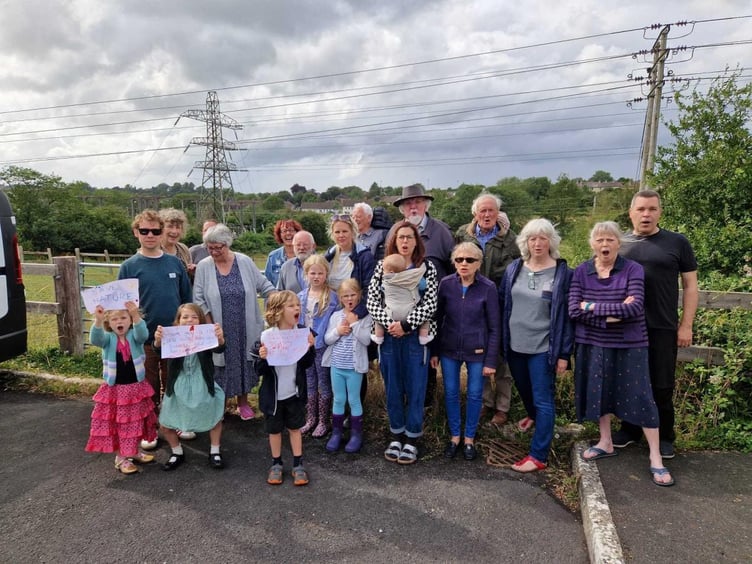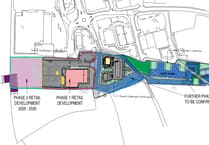RESIDENTS of Frome have failed in their bid to prevent a “hazardous” battery energy storage site from being built near a busy residential area.
Battery energy storage sites use batteries to store electricity generated at times of low demand, with the operators selling the energy back to the National Grid at peak times.
Trina Solar UK HoldCo Ltd. applied in June 2023 to build such a facility on land north of Styles Close in Frome, next to an existing substation.
Following outcry from local residents, Somerset Council’s planning committee east voted to refuse planning permission in early-February 2025, a decision made with the backing of local MP Anna Sabine.
But the Planning Inspectorate has now overturned this decision following a successful appeal, ruling that the risk of fire was low and residents’ quality of life would not be adversely affected.
The planned facility will be accessed off Styles Close, around 30 metres from the nearest house, with a direct connection to the substation and new wetlands being created at the northern edge (near the Rodden Lake Stream) to mitigate the impact of construction.
The facility will have a capacity of around 30 MW, around the same as the Fideoak facility in Taunton which was created by South Somerset District Council as part of its commercial investments strategy.
Inspector Graham Chamberlain visited the site on October 27, and published his final report on the Planning Inspectorate’s official website on Wednesday (November 12).
Mr Chamberlain said that the “notable slope” of the land away from the homes would reduce the impact of the facility, allowing the planned acoustic fence to adequately reduce noise generated by the transformers and associated equipment.
He added that the views from properties in Styles Close was “already compromised by existing overhead power lines, a pylon and the large substation”, arguing that the battery storage site, while “stark and dominant”, would not greatly exacerbate this situation.
He said: “During my site visit, I observed that the planting to the south of the existing substation provides a notable softening effect.
“Planting could be effective if provided at sufficient density, depth and thickness to provide a screening effect, even when not in leaf.
“The planting would also have to be provided at sufficient maturity to ensure there is a prompt softening and screening effect, even at first floor level.”
Mr Chamberlain said that noise related to building work would be restricted to the six-month construction period, and there would only be “a very low level of activity” relating to maintenance, with inspections taking place once a fortnight.
Ms Sabine had raised the fire risk associated with battery storage sites when the committee met in early-February, stating: “I do believe we need to transition away from our reliance on fossil fuels, and these facilities can provide a partial solution to this.
“But clearly there are fire risks associated with any battery item, from household batteries setting fire to landfill sites to e-bikes, vapes and large-scale battery facilities.”





Comments
This article has no comments yet. Be the first to leave a comment.